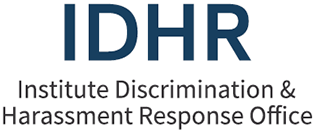Resolution Pathways | Adaptable Resolution | What's the Process Like?
Adaptable resolution offers a range of structured and facilitated processes
Process
Adaptable resolution offers a range of direct and indirect, structured and facilitated processes that can allow people to:
- Talk about their thoughts, feelings and experiences related to conduct, impact and harm
- Work towards mutual understanding
- Engage in productive, safe, and respectful dialogue
- Explore possibilities of reaching mutually agreeable outcomes that remedy, mitigate and/or prevent the impacts of the conduct
Supporting Parties
In addition to the Impacted Party and the Responding Party, other participants may serve the role of supporting party. A supporting party in the adaptable resolution process may be:
- A support person/advisor for the Impacted Party or Responding Party
- Individuals who have been indirectly impacted by the specific conduct or similar conduct (and can serve as a surrogate for the concern)
- Individuals who can offer resources in support of developing strategies for resolution
Additionally, interim and/or supportive measures can be accessed anytime and used in coordination with adaptable resolution pathways.
Other Decisions
Through adaptable resolution, parties work with the Restorative Resolutions Coordinator to co-construct a dialogue process for a mutually productive conversation. This includes decisions on:
- Meeting face-to-face or indirect (ie. written/video exchange, shuttle mediation, surrogate, etc.)
- Conditions for safe and productive exchange
- Topics to be discussed
- Who participates
- Best process to support mutual resolution


